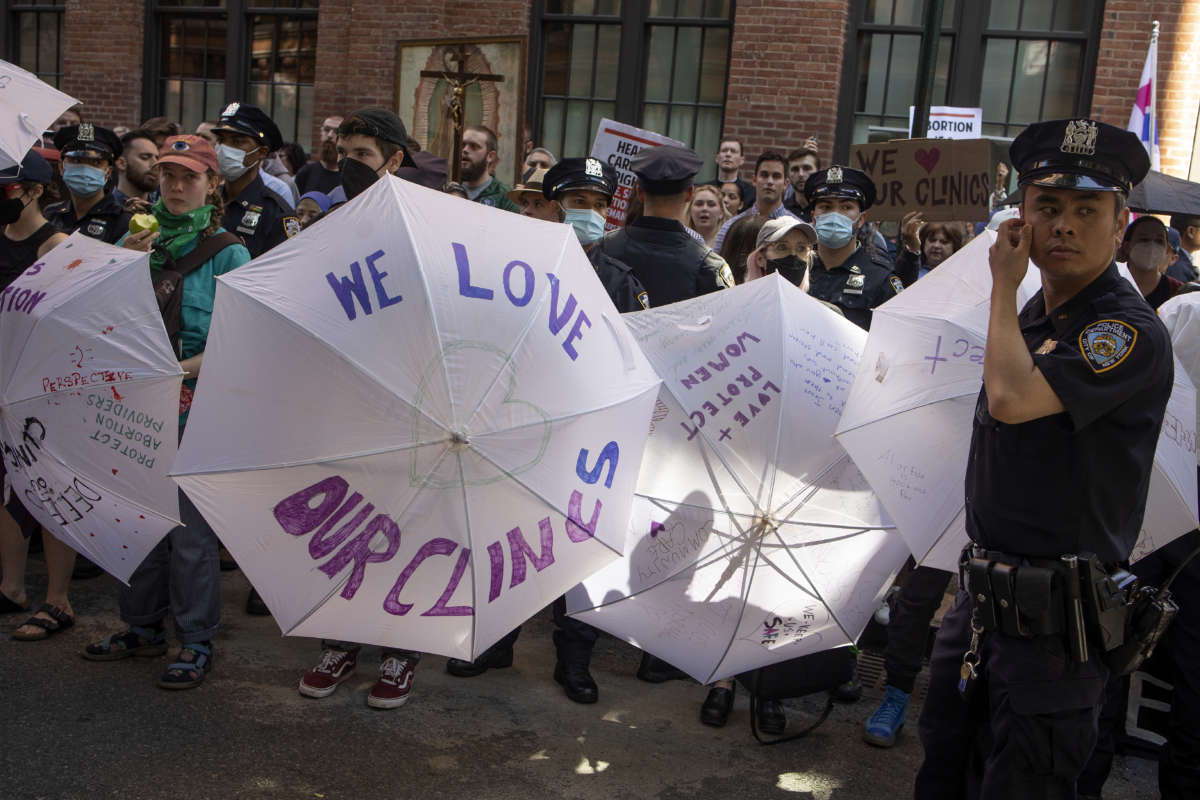Twenty-six abortion clinics have shut down since the Supreme Court overturned Roe v. Wade, per a new analysis from the Guttmacher Institute, cutting off access not only to abortion, but critical health services. And researchers say the number of clinics that shutter will only grow as abortion bans stay in effect.
The analysis looked at states where total or six-week abortion bans are being enforced. As of October 2 — the 100-day mark since Roe’s overturn — 66 clinics had stopped providing abortions, according to the report, including some in states where abortion is still legal. Previously, 79 clinics offered abortion in the 15 states studied; now, only 13 do.
A dozen of the clinic closures were in Texas, where abortion is almost entirely illegal and which enforced a law banning abortions after six weeks of pregnancy months before the court undid Roe.
The abortion clinics that remain open — even if they aren’t providing abortions — still offer an array of reproductive services such as contraception, testing for sexually transmitted infections and gender-affirming care. As more clinics shut their doors, those services will be harder to come by.
“People in these communities are obviously losing access to abortion care, but they are losing access to other kinds of reproductive health care as well,” said Rachel Jones, a principal research scientist at Guttmacher and one of the authors behind the analysis.
The loss of services comes as more people were seeking abortions, data suggests. A June survey from Guttmacher found that in 2020, about 1 in 5 pregnancies ended in abortion, the first increase in 30 years.
In Ohio and Indiana, courts have blocked the states’ respective six-week and near-total abortion bans. Near-total bans remain blocked in Utah and Wyoming. And state courts in South Carolina and Iowa have not allowed six-week bans to take effect.
All of those cases are being actively litigated.
Meanwhile, lawmakers in other states may push to enact more punitive restrictions. In Nebraska, the governor attempted to call back the legislature to pass some form of abortion ban but reportedly fell three shy of the number of votes needed to pass a 12-week abortion ban. Florida is currently banning abortion for people after 15 weeks of pregnancy, but the legislature is expected to debate a stricter ban in the coming year.
If individual states ultimately are able to enforce these abortion bans, Jones said, the likely result would be even more clinics shutting down completely.
“The number of clinics providing abortion care will get lower,” she said. “The number of clinics that will have to shutter completely is going to increase.”
One clinic in Arizona has closed even though the state’s total abortion ban, which was passed in 1864, only took effect September 23. That ban is still being challenged in court.
That immediacy, Jones said, highlights that even if abortion bans are eventually overturned, the impact on abortion access can still be significant.
History supports that. When, in 2013, Texas passed a law imposing major restrictions on abortion clinics, many closed permanently. Even though that law was ultimately struck down by the Supreme Court, the relief came too late for providers, who often operate on thin margins.
“It’s not just a matter of, ‘Oh, we’ll just close our doors because there’s an abortion ban and we can reopen overnight if the ban is lifted,’” Jones said. “All this off and on is very difficult for clinics to operate. They can’t afford to keep staff on hand.”
Join us in defending the truth before it’s too late
The future of independent journalism is uncertain, and the consequences of losing it are too grave to ignore. To ensure Truthout remains safe, strong, and free, we need to raise $46,000 in the next 7 days. Every dollar raised goes directly toward the costs of producing news you can trust.
Please give what you can — because by supporting us with a tax-deductible donation, you’re not just preserving a source of news, you’re helping to safeguard what’s left of our democracy.
